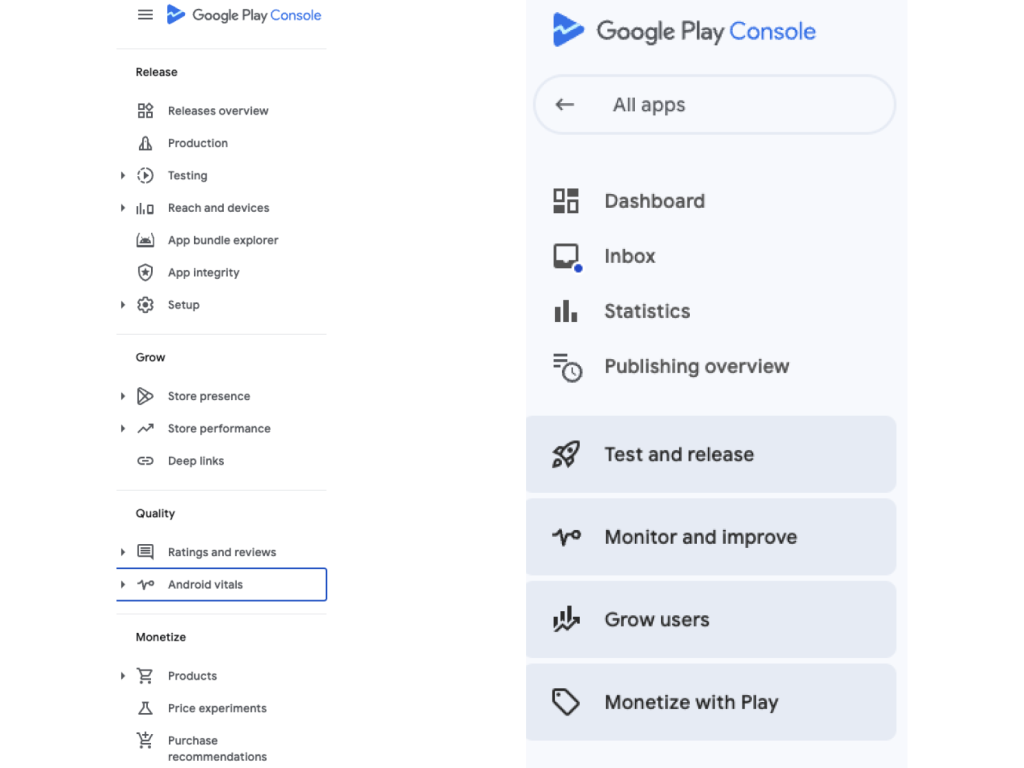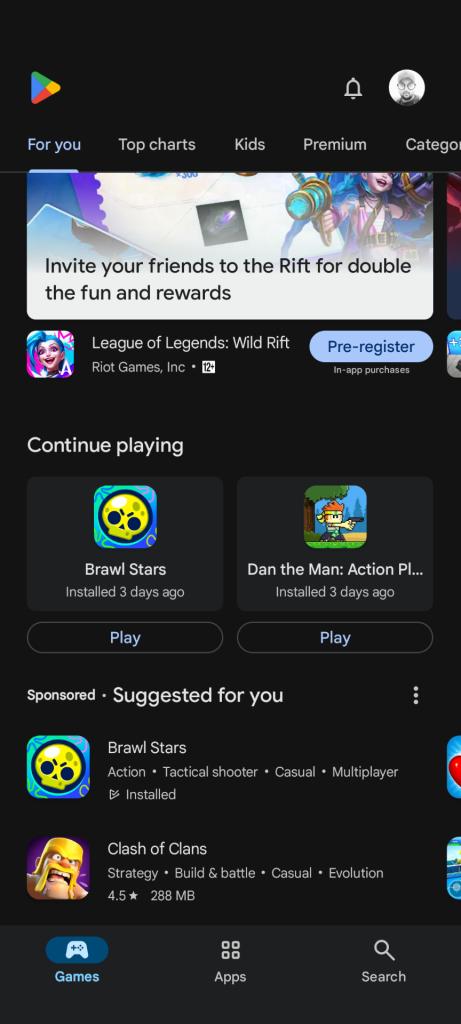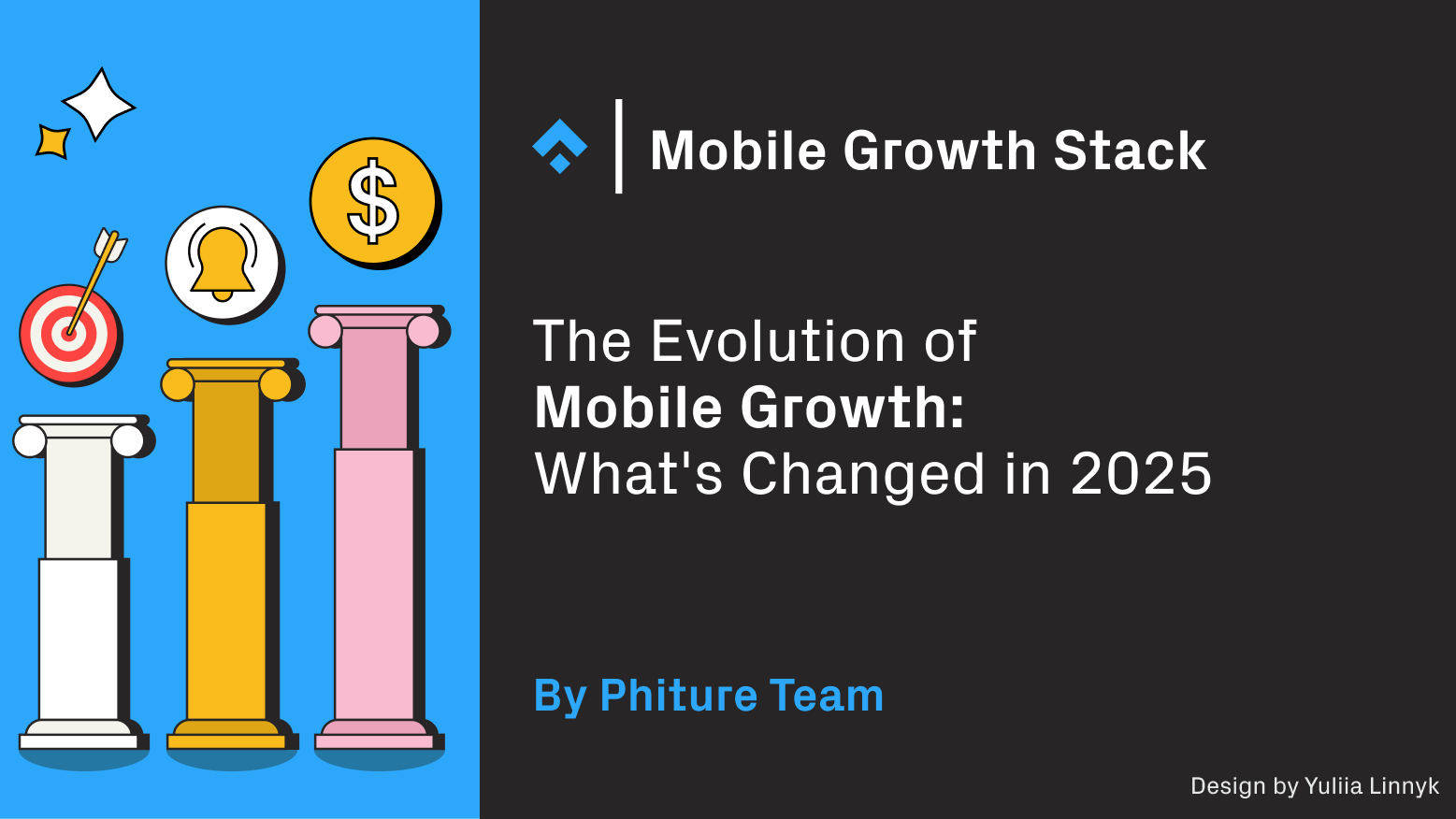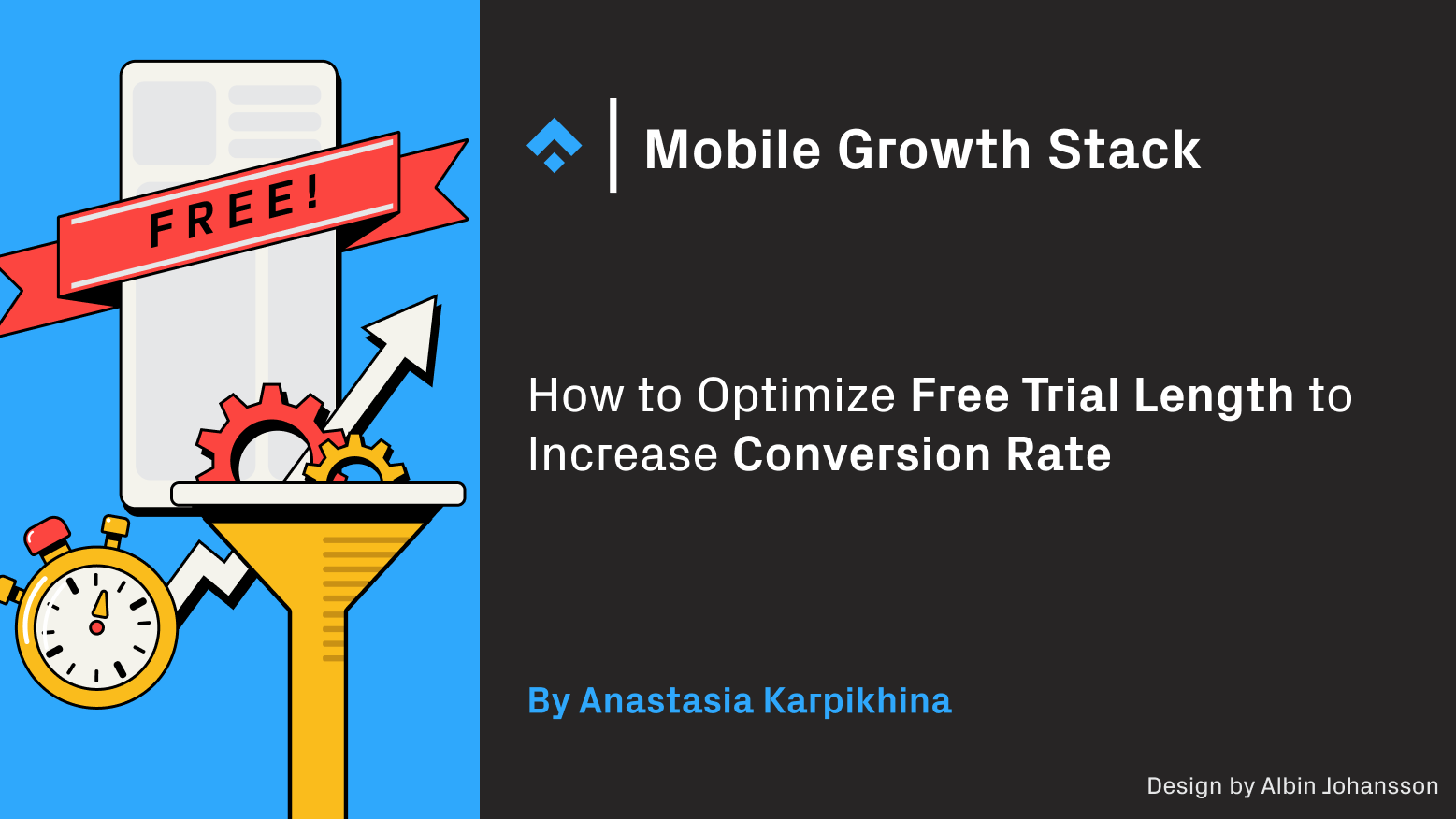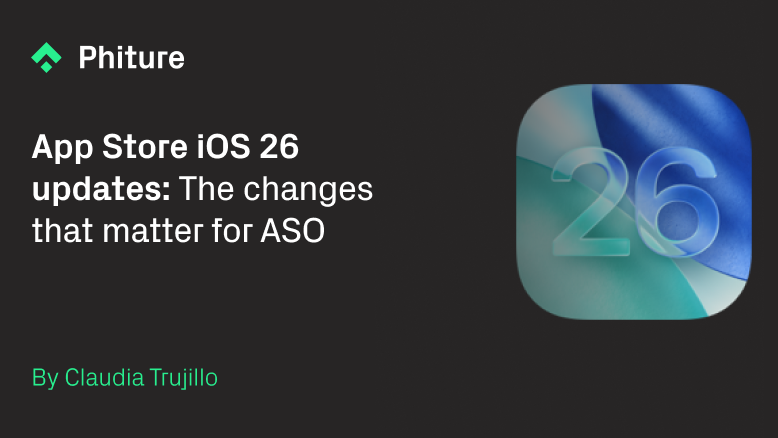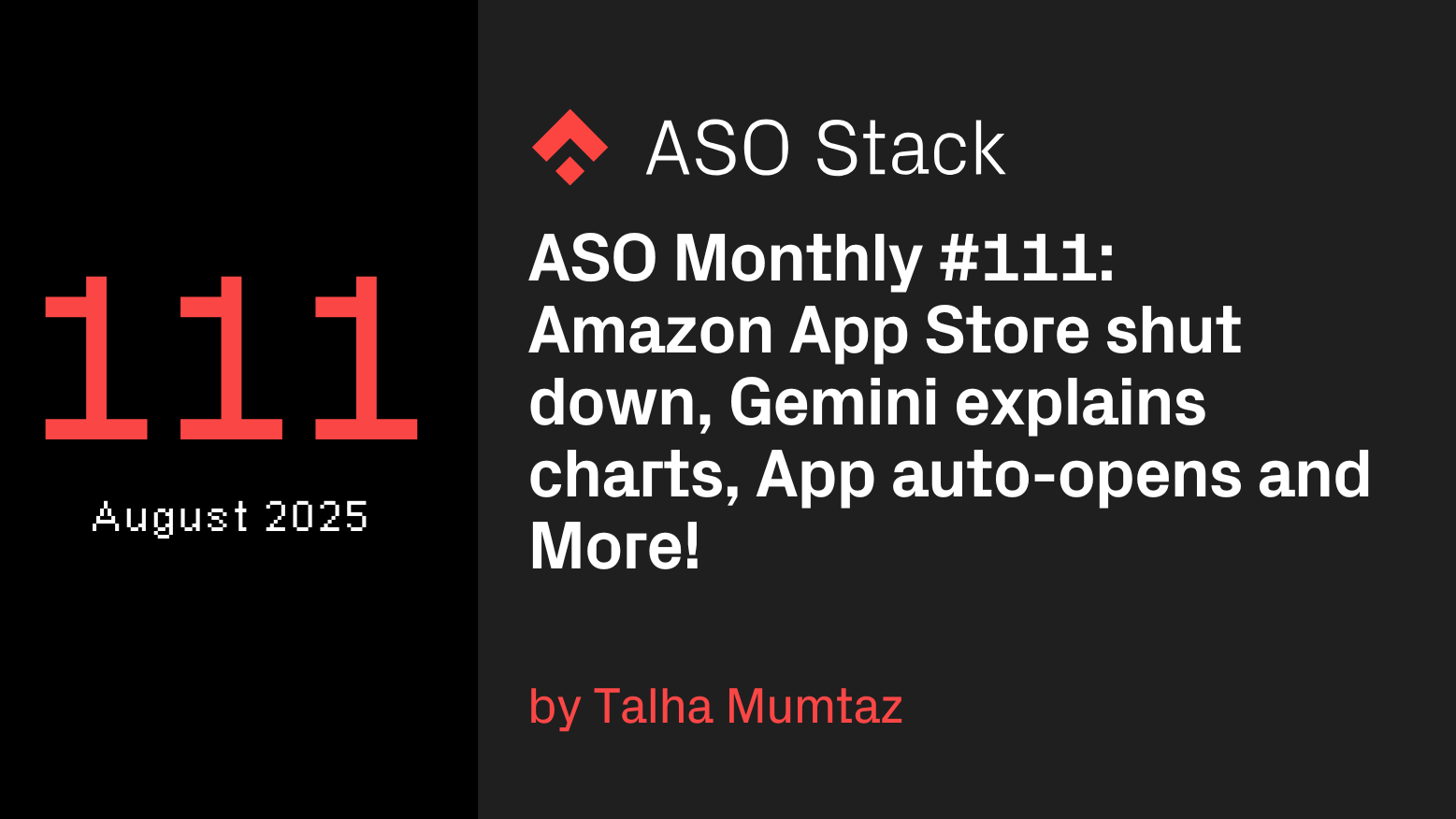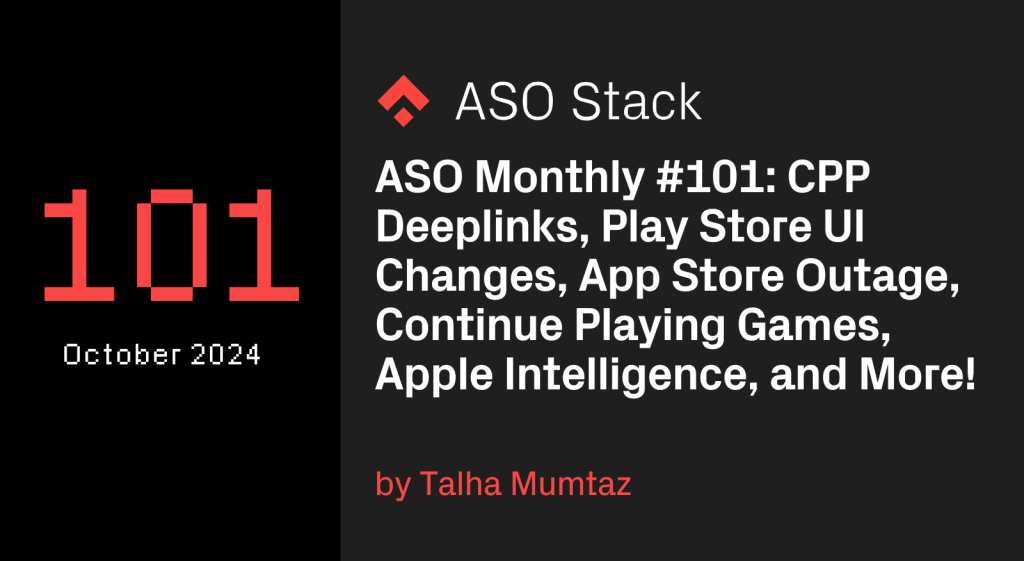
This month’s ASO Monthly edition outlines the most relevant App Store Optimization developments from October. Here, we shed light on trends in ASO, algorithm changes, insights into conversion rate optimization, and tool updates.
October 01
Deep Links Are Now Available for Custom Product Pages
On October 1, 2024, Apple announced that advertisers can now use deep links in Custom Product Pages (CPPs) to direct users to specific app content via App Store ads. This update allows for a more cohesive strategy across paid user acquisition, App Store Optimization, and retention efforts, creating a seamless and highly targeted user journey. By aligning ad content with in-app experiences, businesses can elevate engagement and better optimize the overall app experience, maximizing the impact of every touchpoint.
October 10
Google Play Console UI Undergoes a Revamp
Since the start of 2024, Google has been rolling out changes to the Google Play Console, including updates from acquisition tracking to more detailed store listings views. Recently, the navigation UI was revamped, categorizing tabs into four main sections: “Test and Release,” “Monitor and Improve,” “Grow Users,” and “Monetize with Play.” This update aims to simplify workflows, allowing publishers, developers, and ASO practitioners to quickly access their most-used tools and focus areas, enhancing day-to-day productivity and efficiency.
Subscribe to the ASO Monthly Newsletter
Get the latest ASO updates straight to your inbox, once a month.
October 16
Apple App Store Experienced a Brief Outage
As reported by The Verge, on October 16, 2024, Apple’s App Store experienced a brief but disruptive outage that prevented users from installing new apps on iPhones, iPads, and Macs. Reports of issues began surfacing around 11 AM ET, with users encountering problems when attempting to download apps. ASO practitioners should check if the app downloads declined on October 16th compared to the previous and next days.
October 16
Apple Expands Its Business Toolkit To Help More Businesses Reach 1 Billion Users
Apple has expanded its Business Connect toolset, enabling businesses–even without a physical presence–to establish their brand visibility across apps like Apple Maps, Wallet, and Mail. The key updates include branded emails, enhanced payment verification logos for Tap to Pay, and the upcoming branded caller ID feature. These updates aim to bolster customer trust and streamline business-consumer interactions through consistent branding across Apple services.
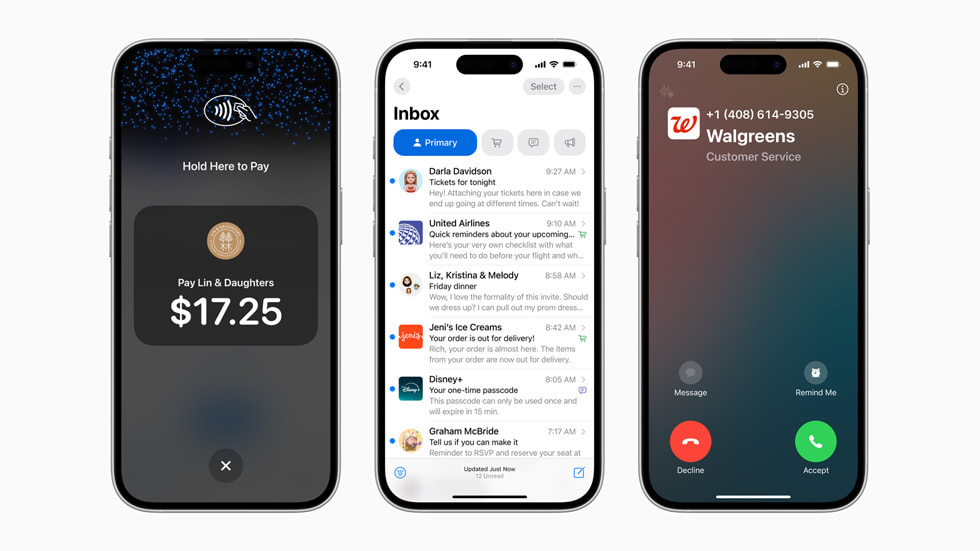
October 25
Google Testing New Feature To Re-Engage Gamers in Play Store
At Phiture, we’ve noticed a new “Continue Playing” section in the Play Store, highlighting games users have installed but haven’t engaged with recently. This section has a clean design, emphasizing the game icon, title, and how long it’s been on a device. While it remains uncertain if this feature will be rolled out broadly, it represents a promising step toward enhancing user engagement and boosting app sessions. If fully implemented, it could encourage players to revisit games, fostering greater retention and interactivity across the platform.
October 28
Apple Intelligence Becomes Available on Apple Devices
Apple has introduced “Apple Intelligence,” a suite of advanced AI features now available on iPhone, iPad, and Mac. This update enhances Siri’s capabilities, offering contextual and personalized responses, offline requests, and seamless app integration. The features include intelligent content suggestions, text summarization, and new AI-driven interactions across apps, focusing on privacy and security.
Expert’s take: Enhanced AI capabilities could alter user search behavior and app discovery patterns. Apps optimizing for AI-driven queries, personalized recommendations, and voice interactions may see increased engagement and visibility on the App Store. We have already started seeing natural descriptive terms appearing in the search results on the App Store.
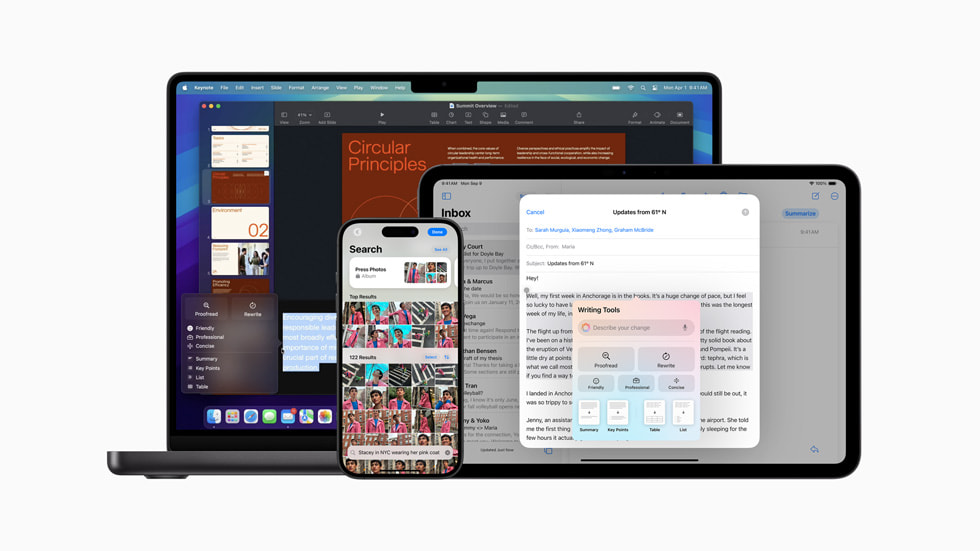
October 30
Apple May Soon Start Providing App Review Summaries
As reported by MacRumours, Apple is–reportedly–introducing “Summaries” for user reviews in the App Store to help users quickly understand key feedback from others. This feature automatically condenses multiple reviews into a short summary, highlighting common themes.
Takeaway for ASO: This could impact how users evaluate your app based on reviews. A well-managed reputation and positive reviews are now even more critical as this feature will likely influence user perception and conversion rates. It’s essential to monitor and actively manage reviews to ensure the summaries reflect a favorable image.
Interesting Reads/Listens/Watches
App Store Optimization 2024: News & App Store Updates | AppTweak
43 Examples and 10 Tips on How To Respond to Negative Reviews | AppFollow
8 Steps to Become an ASO Expert in 2024 | AppRadar
The Rising Popularity of Alternative App Stores | AppsFlyer
Phiture’s ASO Tips of the Month:
Occasionally, A/B test winners on Google Play may show false positives, identifiable by comparing performance before and after the test. If the results are unexpected, retest using an A/A/B test if traffic volume allows. Otherwise, explore bolder changes for better significance. Also, false positives are more common with brand-heavy traffic than discovery-driven experiments. From experience, I’ve learned that experiments can be influenced by multiple factors, and results may change when scaled to full traffic.
— Talha Mumtaz, Growth Manager
Table of Contents

